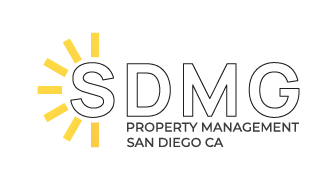Understanding Property Management Regulations and Standards
In the realm of real estate, property management plays a crucial role in bridging the gap between landlords and tenants. This article delves into the regulatory framework governing property management companies, their roles, responsibilities, and the standards they adhere to ensure fair practices for both parties involved.
Who Regulates Property Management Companies?
Property management companies operate under the purview of various local, state, and federal agencies depending on the jurisdiction. These entities enforce regulations to safeguard tenant and landlord rights, maintain property standards, and ensure compliance with housing laws.
The primary regulators include:
- Local Housing Authorities: Often responsible for enforcing local housing codes and tenant rights.
- State Real Estate Commissions: Oversee licensing and regulation of real estate professionals, including property managers.
- Federal Agencies: Such as the U.S. Department of Housing and Urban Development (HUD) and the Consumer Financial Protection Bureau (CFPB), which set national standards and enforce federal laws.
Role of a Property Management Company
The core function of a property management company is to oversee the day-to-day operations of rental properties on behalf of the landlord. This includes finding qualified tenants, collecting rent, handling maintenance issues, and ensuring compliance with legal requirements. Their role is pivotal in maintaining the quality of rental units and fostering positive relationships between landlords and tenants.
Protecting Tenants and Landlords’ Rights
To safeguard the interests of both tenants and landlords, property management companies must adhere to a range of regulations and standards.
These include:
- Fair Housing Laws: Prohibiting discrimination based on race, color, religion, sex, familial status, or national origin.
- Tenant Screening Practices: Ensuring thorough background checks and adherence to fair credit reporting laws.
- Maintenance and Repair: Promptly addressing property issues to maintain habitability standards.
Setting Standards for Property Management Companies
Standards for property management companies are established by regulatory bodies and industry associations such as the National Association of Residential Property Managers (NARPM). These standards cover areas like ethical conduct, professional development, and adherence to best practices in property management.
Specific Regulations and Qualifications
Property management companies must comply with specific regulations, including those related to tenant screening, lead-based paint disclosure, and accessibility for disabled individuals. To become a property manager in regulated states, one typically needs:
- A high school diploma or equivalent.
- Relevant experience in property management or a related field.
- Completion of a certification program, such as the Certified Apartment Manager (CAM) designation offered by NARPM.
Can a Landlord Act as Their Own Property Manager?
Yes, a landlord can manage their own properties, but doing so requires a comprehensive understanding of local, state, and federal laws, as well as the ability to handle tenant relations, maintenance, and financial aspects of property management. However, many landlords opt to hire professional property management companies due to the complexity and time commitment involved.
Consequences of Non-compliance
Failure to comply with regulations can result in fines, lawsuits, and damage to the company’s reputation. It may also lead to the loss of licensure or certification, affecting the company’s ability to operate legally.
Consumer Protection Laws and Complaints
Consumer protection laws, such as the Dodd-Frank Wall Street Reform and Consumer Protection Act, apply to property management companies, especially regarding disclosures about fees and services. Tenants can file complaints with local housing authorities, state real estate commissions, or federal agencies like HUD for violations of these laws.
Fees, Audits, and Licenses
Property management companies are subject to restrictions on the fees they can charge, often regulated by state law. They must undergo periodic audits or inspections by regulatory bodies to ensure compliance with all applicable laws and standards. Licensing and certification requirements vary by state but generally involve passing exams and meeting ongoing education requirements.
Maintenance and Repairs Responsibilities
Property management companies are responsible for coordinating and overseeing maintenance and repair work to ensure the property remains safe, functional, and habitable. This includes responding to tenant concerns, scheduling repairs, and managing contractors.
Property management companies play a vital role in the rental market, balancing the needs and rights of landlords and tenants within a complex web of regulations. By adhering to established standards and complying with legal requirements, these companies contribute to the stability and safety of rental communities across the country.
